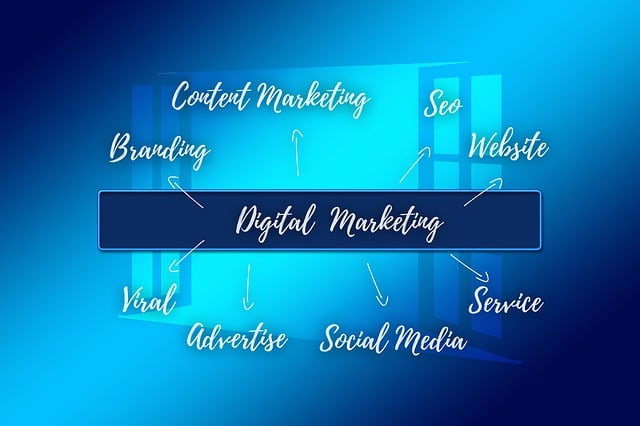In today's digital era, medical practices must prioritize healthcare marketing services (SEO) to thrive in a competitive market. SEO isn't just about online visibility; it involves strategic approaches to connect with patients searching for healthcare services on platforms like Google and Bing. Key strategies include keyword research, high-quality content creation, mobile optimization, local SEO, building backlinks, and analyzing performance metrics. Integrating healthcare marketing services with other marketing tactics enhances online visibility and patient acquisition in a bustling digital landscape.
In today’s digital era, a strong online presence is crucial for medical practices to thrive. SEO (Search Engine Optimization) plays a pivotal role in attracting patients and differentiating your practice from competitors. This article guides you through essential SEO strategies tailored specifically for the healthcare industry. From understanding the fundamentals of healthcare marketing services to optimizing website content, local reach, mobile accessibility, and tracking performance, each section offers valuable insights to enhance your online visibility and patient engagement.
Understanding SEO in Healthcare: Why It Matters for Medical Practices

In the digital age, understanding Search Engine Optimization (SEO) is paramount for medical practices aiming to thrive in the competitive healthcare market. SEO goes beyond merely increasing online visibility; it’s a strategic approach to connect with patients where they search – on Google, Bing, and other search engines. By optimizing websites with relevant keywords, high-quality content, and mobile-friendly design, medical practices can attract potential patients actively seeking healthcare services. This is crucial because healthcare marketing services are not just about reaching a broader audience; it’s about establishing trust, credibility, and authority in a field where accurate information and patient safety are paramount.
When it comes to SEO for medical practices, the focus shifts from general online presence to targeted, localized search results. Patients often turn to search engines when they have specific health concerns or need to find specialists nearby. Effective SEO strategies ensure that medical practices appear at the top of these search rankings, making them the first choice for prospective patients. This is where healthcare marketing services excel, leveraging data-driven insights and proven techniques to outrank competitors, engage with potential patients, and ultimately, drive appointments and grow practices.
Keyword Research: Identifying Relevant Terms for Your Specialty

In the competitive landscape of healthcare marketing services, keyword research is a cornerstone strategy for medical practices aiming to boost their online visibility. The process involves meticulously identifying and analyzing terms that potential patients use when searching for specific medical conditions, treatments, or healthcare providers. By understanding these keywords, practices can optimize their website content, making it more relevant and attractive to the target audience. This ensures that when patients search for services related to their specialty, the practice’s online presence is prominent, increasing the likelihood of attracting new patients.
Relevant keywords should directly reflect the medical practice’s expertise and offerings. For instance, a cardiology clinic would target terms like “heart disease treatment” or “cardiac care near me,” while a dermatology practice might focus on “skin cancer prevention” or “dermatologist for acne.” Incorporating these keywords into strategic locations on a website, such as titles, meta descriptions, and content, helps search engines understand the site’s purpose and improves its ranking in relevant searches.
Optimizing Your Website: Content, Structure, and User Experience

Optimizing your website is a crucial aspect of healthcare marketing services for medical practices. Start with high-quality, relevant content that educates and engages your target audience. Incorporate keywords naturally throughout your text, focusing on common patient queries and industry trends. Well-crafted blog posts, informative articles, and detailed service pages not only attract visitors but also establish your practice as a trusted authority in the medical field.
Next, focus on website structure and navigation to ensure a seamless user experience. A logical site map, intuitive menus, and internal linking help patients find information quickly. Optimize page load times and ensure your website is mobile-friendly or responsive, as most users access healthcare services via smartphones or tablets. This not only improves patient satisfaction but also boosts search engine rankings.
Local SEO: Reaching Patients in Your Area Effectively

In today’s digital age, local SEO has become an indispensable component of healthcare marketing services for medical practices. By optimizing their online presence for local search results, medical facilities can effectively reach patients in their area. This involves ensuring that business listings are accurate and consistent across various platforms, such as Google My Business, Yelp, and other industry-specific directories. Incorporating location-based keywords into website content, patient reviews, and meta tags also plays a crucial role in improving local visibility.
Additionally, engaging in local community events, partnerships with local businesses, and active participation in online forums can further enhance a medical practice’s local SEO efforts. These strategies not only increase the chances of patients finding the clinic through local search queries but also foster a sense of trust and familiarity, leading to better patient retention and referral rates.
Building High-Quality Backlinks: Strategies for Medical Websites

Building high-quality backlinks is an essential strategy for medical websites aiming to enhance their online visibility and authority in the competitive healthcare marketing services landscape. These links act as digital votes of confidence, signaling search engines that a website offers valuable, credible information. Medical practices can employ several effective tactics to acquire these valuable backlinks. One approach is to create informative, shareable content like blog posts or research articles that address common patient concerns and emerging medical trends. This content can be strategically distributed across relevant online platforms, attracting natural backlinks from other reputable healthcare websites and industry influencers.
Another powerful method is to engage with local business directories and niche-specific resources. By claiming their listings and contributing high-quality content, medical practices can secure backlinks from these authoritative sources. Additionally, building relationships with patient advocacy groups and community organizations can open doors to collaborative opportunities, including co-authored blog posts or event partnerships, which further boost the website’s backlink profile. These strategies, when implemented consistently, can significantly improve a medical website’s search engine rankings and attract more qualified patients.
Mobile Optimization: Ensuring Accessibility on Smartphones and Tablets

In today’s digital era, mobile optimization is no longer an option but a necessity for healthcare marketing services. With a significant portion of internet users accessing information via smartphones and tablets, medical practices must ensure their websites are fully functional and accessible on these devices. Mobile-friendly design isn’t just about responsiveness; it involves simplifying complex information to fit smaller screens, enhancing user experience, and streamlining booking processes. Optimizing for mobile search engine results pages (SERPs) can lead to better visibility, increased patient engagement, and ultimately, more successful healthcare delivery.
A well-optimized mobile site allows patients to easily navigate through critical sections like service offerings, doctor profiles, contact details, and appointment scheduling—all essential elements in healthcare marketing services. This accessibility not only improves convenience but also boosts the credibility of medical practices in the eyes of potential patients. By prioritizing mobile optimization, healthcare providers can better connect with their target audience, offering them the information they need at their fingertips, anytime, anywhere.
Analyzing and Tracking Your SEO Performance with Key Metrics

Analyzing and tracking your SEO performance is essential for any healthcare marketing services. Key metrics like organic traffic, keyword rankings, click-through rates (CTRs), and conversion rates provide valuable insights into how well your website is performing in search engine results pages (SERPs). By regularly monitoring these metrics, you can identify trends, understand user behavior, and make data-driven decisions to optimize your SEO strategy.
For instance, tracking organic traffic allows you to gauge the effectiveness of your content marketing efforts while keyword rankings help you assess your website’s visibility for specific search terms relevant to your medical practice. Conversion rates are particularly crucial as they indicate how well your website is performing in converting visitors into patients or clients. This data can guide you in refining your healthcare marketing services, focusing on high-performing areas, and addressing underperforming aspects of your SEO strategy.
Integrating SEO with Other Healthcare Marketing Services for Maximum Impact

In the competitive landscape of healthcare, integrating SEO with other healthcare marketing services is a strategic move that can significantly enhance a medical practice’s online visibility and patient acquisition. While Search Engine Optimization (SEO) forms the backbone of digital marketing by driving organic traffic to websites, combining it with complementary services amplifies its impact. For instance, aligning SEO efforts with content marketing ensures that valuable, relevant content reaches the right audience through search engines. Similarly, integrating social media marketing allows healthcare providers to engage directly with potential patients, fostering trust and credibility.
By seamlessly blending these healthcare marketing services, medical practices can create a holistic approach that captivates their target audience at every touchpoint. This multi-faceted strategy not only boosts website rankings but also builds a robust online presence, enabling practices to stand out in a crowded market. As patients increasingly turn to the internet for healthcare information and service selection, leveraging these integrated marketing tactics becomes essential for attracting and retaining a loyal patient base.
